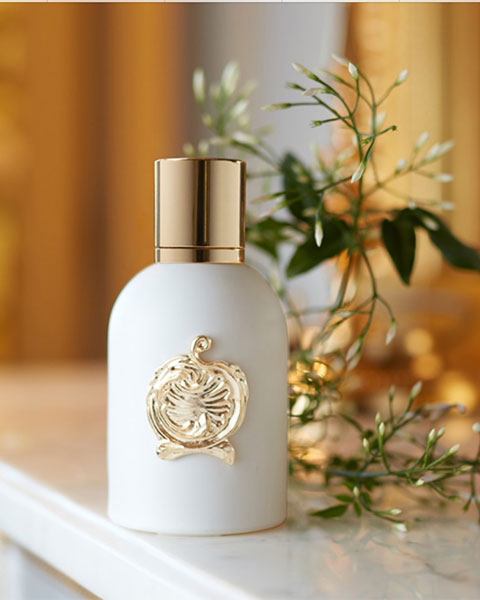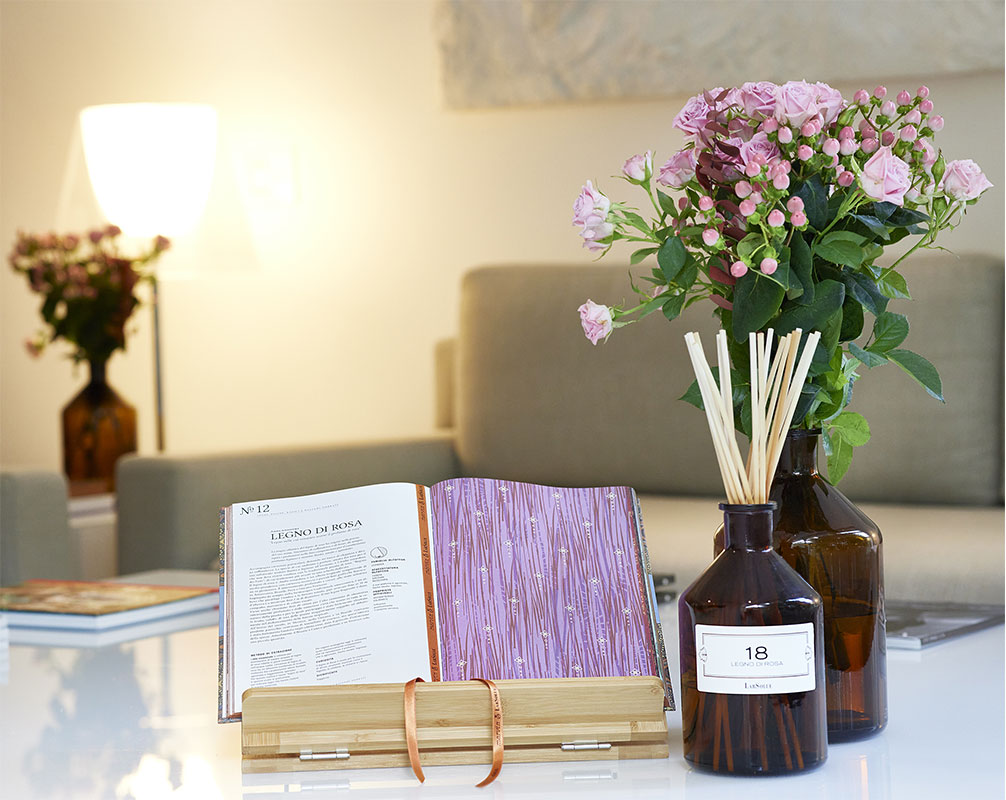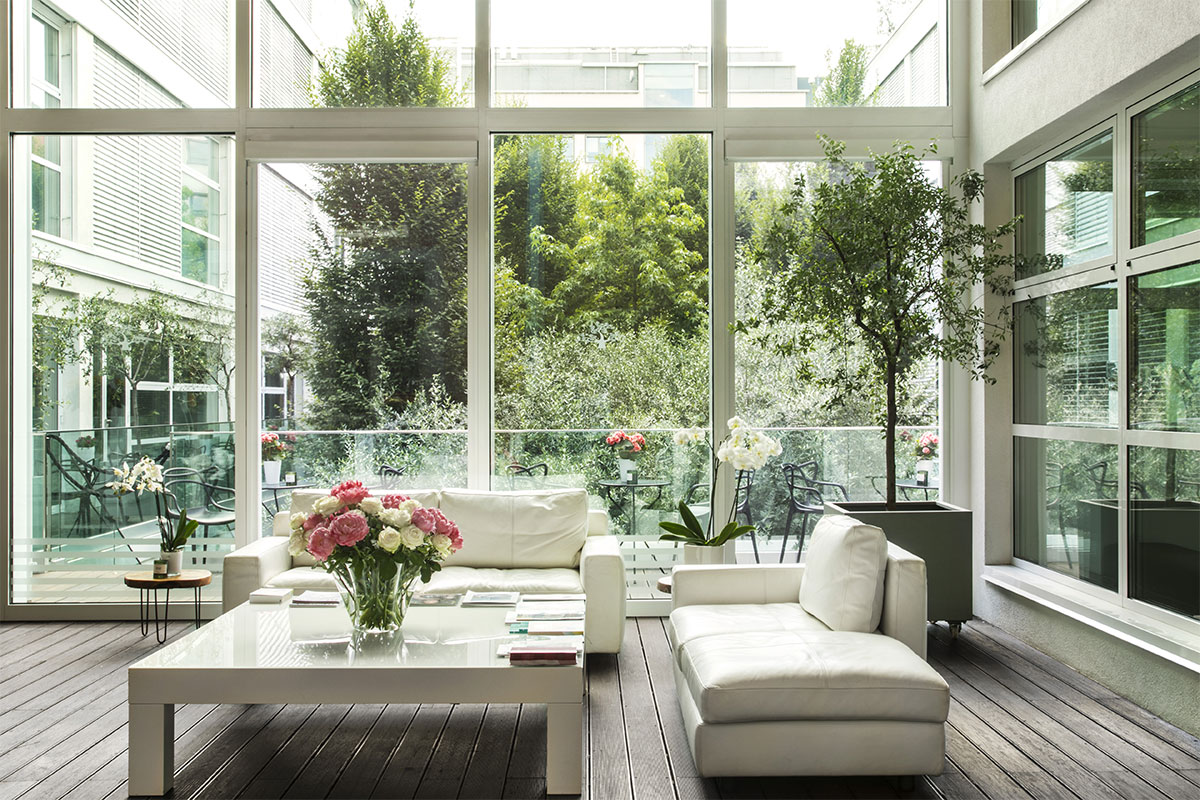In Milan, the “Hotel à Parfum” was established to express Italian excellence and to offer its guests a unique sensory experience






Revolving doors stir the air, and in an instant, Place Vendôme yields to the plush velvets and ornate gilding of the Ritz hotel. However, upon entering, it’s not the sight but the smell that catches our attention. We are greeted by a faint scent of amber, a discreet perfume that will forever be associated with this luxurious Parisian palace in our memories. An amber heart, a hint of black peppercorn with undertones of jasmine, mild tobacco, and Tonka beans – these are the ingredients of this elixir that permeates the salons. Guests can even take it home, elegantly packaged in a white bottle from the Ritz boutique in Paris, to extend the emotions of their stay. If Ambre Péristyle is the signature fragrance of the luxury hotel, two other scents, specially composed for the Ritz, stand as emblems of the French art de vivre, inseparable from sensory emotions: Suite Impériale, with its powdery iris notes, and Grand Jardin, evoking the hidden green spaces where guests find respite.

The home fragrance Ambre Péristyle was created exclusively for the Ritz Paris to reflect Parisian elegance. The bottle bears the Ritz Paris' emblematic suite key, which has been used since the hotel opened in 1898
In the City of Lights, just a stone’s throw from the Ritz Paris, lies Hôtel Costes, a fashionable haven. Here, a more baroque essence permeates the air, capturing the very spirit of the place: waxed wood, rum, mahogany, bitter orange peel, paprika, and oak moss. Since 2001, the signature fragrance of this luxury hotel has been meticulously crafted by the esteemed French perfumer Olivia Giacobetti, whose fondness for the oak tree imbues many of her creations.
Then there’s Magna Pars L’Hotel à Parfum in Milan, the pioneering Hotel à Parfums concept. Nestled within the walls of a historic perfume factory owned by the Martone family, it has evolved into a five-star destination devoted to captivating the senses, especially the sense of smell. Here, check-in isn’t just a process—it’s an olfactory journey. Guests are invited to select from 68 fragrances, each corresponding to a suite where they’ll stay. They can even take their chosen scent home in the form of a home fragrance, candle, or Eau de Parfum. Moreover, Magna Pars in Milan treats guests to sensory aperitifs and a ‘Menu à Parfum’ in its restaurant, ensuring an unforgettable experience for the senses.

The Magna Pars L'Hotel à Parfum in Milan is a pioneer of the Hotel à Parfums concept. Guests are invited to choose from 68 fragrances, each corresponding to the suite in which they will be staying
In the world of luxury, every hotel, shop, or lounge has its signature fragrance—a deeply influential sensory imprint capable of evoking lasting emotions beyond sight and sound. Consider Venice, where the historic Fondaco dei Tedeschi, now an exquisite shopping destination, exudes an alluring scent of green tea. This fragrance embodies the refinement of these spaces and beckons a sense of well-being, elevating the overall experience for visitors.
Are the signature scents that high-end hotels create to retain guests part of an olfactory marketing strategy? Undoubtedly. “A successful olfactory signature boosts sales,” explained Stéphane Arfi, founder and CEO of Emosens, a prominent olfactory marketing company, in a recent interview with Le Monde. “In hotels, it fosters comfort, evokes emotions, and can even change the way people perceive the palace.”
However, there’s more to it beyond the commercial aspect. Strategically diffusing the appropriate scent in luxury hotels contributes to cultivating the cosy and even prestigious atmosphere that guests anticipate.

“Smell is the soul of a place. It surpasses the significance of music, which is just an accessory,” remarked French perfumer Christophe Laudamiel, who was celebrated for creating the signature fragrance for the Park Hyatt Paris-Vendôme in 2017. This fresh chypre blend, infused with notes of rose, jasmine, cedar, blackcurrant, and moss, embodies the essence of the hotel’s ambience.
View this post on Instagram
When assigned the creation of signature scents for luxury hotels, the perfumer delves into the rich history, purpose, and aesthetics of the location. Blaise Mautin, an expert in hotel fragrances, elaborates on this meticulous process. His portfolio boasts olfactory signatures for prestigious establishments such as Le Bristol Paris, Villa Medici Florence, and Park Hyatt Dubai.
View this post on Instagram
“When commissioned to create a fragrance for a palace, I meticulously evaluate every detail of its décor, from the furnishings to the colour schemes, often consulting with the architect for insights,” explained Blaise Mautin. “A proficient perfumer must be a keen observer and listener: there needs to be a seamless harmony between the hotel and its signature scent.”
View this post on Instagram
Mautin recognised the profound impact of scent in establishing a unique, almost inexplicable connection that resonates with guests’ senses. “Upon entering a hotel, it’s essential to evoke a warm, inviting atmosphere through the ambient perfume, providing guests with unforgettable moments,” he emphasised, underscoring the importance of delivering a distinctive and memorable stay. “I want guests to encounter this particular scent nowhere else.”
Now, when choosing your next hotel, look beyond its aesthetics, amenities, and luxurious accommodations and consider the additional dimension of its signature fragrance, which can enhance the overall experience.
Silvia Manzoni
Journalist and Beauty Expert


